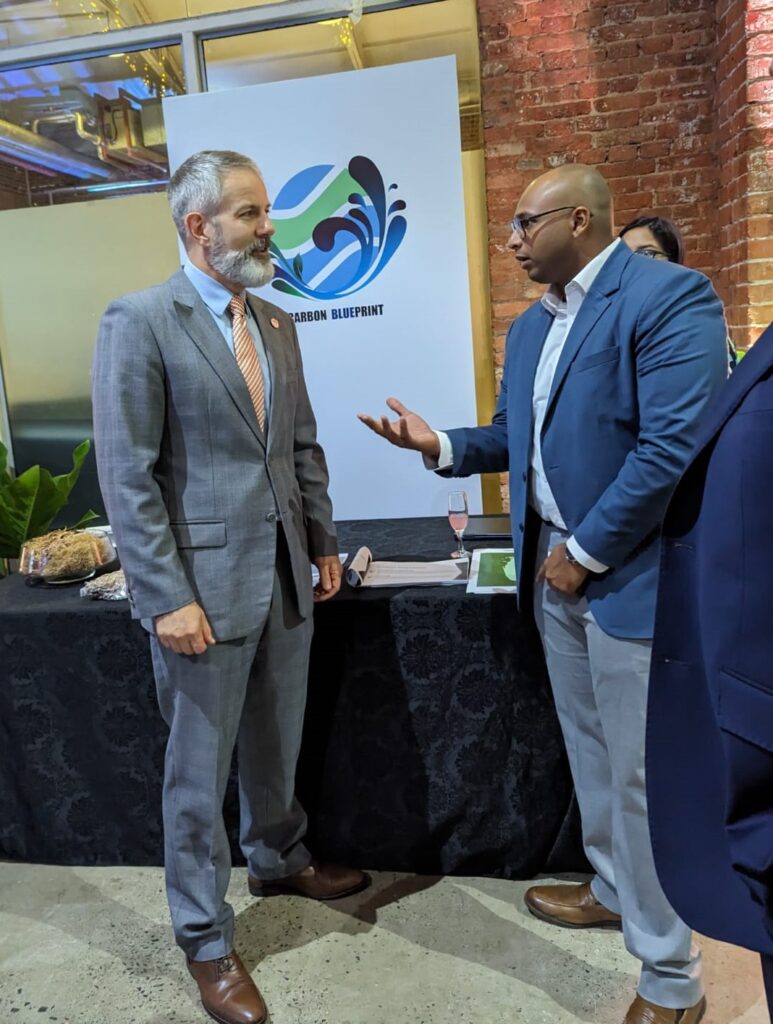USAID’s Accelerator Program showcases innovative entrepreneurs supporting climate resilient approaches
Ten entrepreneurs who received intensive help from the United States Agency for International Development (USAID) and Good Life X (GLX) business accelerator to develop their climate adaptation ideas displayed their results in a Demo Day event on August 2.
This Demo Day marked the end of an eight-month program to help early-stage businesses grow into scalable and sustainable enterprises that can enhance the climate resilience of agriculture, fisheries, and tourism-associated livelihoods in Sri Lanka. The 10 businesses showcased their innovations at the event before an audience of more than 80 investors, partners and collaborators.
Climate smart innovations introduced at the live-streamed event included products to better preserve food, solar charging kits, energy efficient tea dryers, urban farming models, and seaweed-based organic fertilizer among others. The businesses were coached by experts in innovation, business, climate change, agriculture and tourism through a Climate Change Accelerator activity of GLX and USAID’s Climate Change Adaptation project.
“It is inspirational to think that one of the greatest challenges facing our world also presents some of the best business opportunities,” said United States Embassy Deputy Chief of Mission Douglas Sonnek, who addressed the event. “I am impressed with the leadership these enterprises have shown in tackling climate change.”
Randhula de Silva, Founder CEO of GLX noted the importance of applying the innovations of entrepreneurs to tackling climate change adaptation.
“Climate change, whether we like it or not, is real,” she said. “And is the most urgent threat to food security, biodiversity, and livelihoods; in short, to life on earth. This program was tailored to bring climate adaptation into the hands of entrepreneurs, so that our communities and ecosystems stand resilient and thriving amidst the changes.”
The 10 showcased businesses and their innovations were:
- Food Things, an enterprise that is engaged in preservation of food products explained their new vacuum sealer machine that increases the shelf-life of the food and their plans to use a solar powered food dryer;
- Kulumoto, the eco-transport enterprise explained the prototype solar charging kit that offers a zero-carbon footprint solution to potential buyers, as opposed to their earlier model relying on the power grid;
- Saruketha Organics, which produces homemade organic forest tea with a few small-scale tea growers, explained their new energy efficient tea drying machine.
- Ceylon Green and Aqua, explained its urban farming model that combines aquaponics and integrated outdoor farming methods;
- Carbon Blueprint, explained its new seaweed cultivation plan with an expanded value addition process for cultivated seaweed to manufacture liquid organic fertilizers for vegetables and ornamental plants;
- Tourmate.lk (re-branded as Eco Escape- Galle), an eco-tourism venture committed to the conservation of the Keppu Ela (river) and its mangroves, explained its new business model with an electric motor-powered boat to facilitate tours with near zero environmental footprint;
- Inova explained its bio-char production business as a soil conditioner as a waste reduction process;
- Therapy Ceylon explained its business of producing infused tea using native herbs, spices and flowers;
- Iluktenne Plant Nursery, which produces plants and seeds of export crops, explained its expansion to introduce forest plant seedlings in nurseries, ensuring the conservation of forest plants that are at risk of climate change and deforestation, and;
- The Raawana Agro Limited, explained its venture of educating rural farmers on polytunnel greenhouses and other climate-smart technologies that can be used by farmers to better adapt to climate change related impacts.



